Organizers and Partners
This section highlights the institutions and organizations that play a vital role in the planning, execution, and support of the conference. From academic leadership to strategic collaboration and financial sponsorship, the “Organizers and Partners” page recognizes the contributions of all entities involved in making this event possible. It serves both to inform participants about the key stakeholders behind the conference, and to promote transparency, trust, and recognition of their support.
Organizers
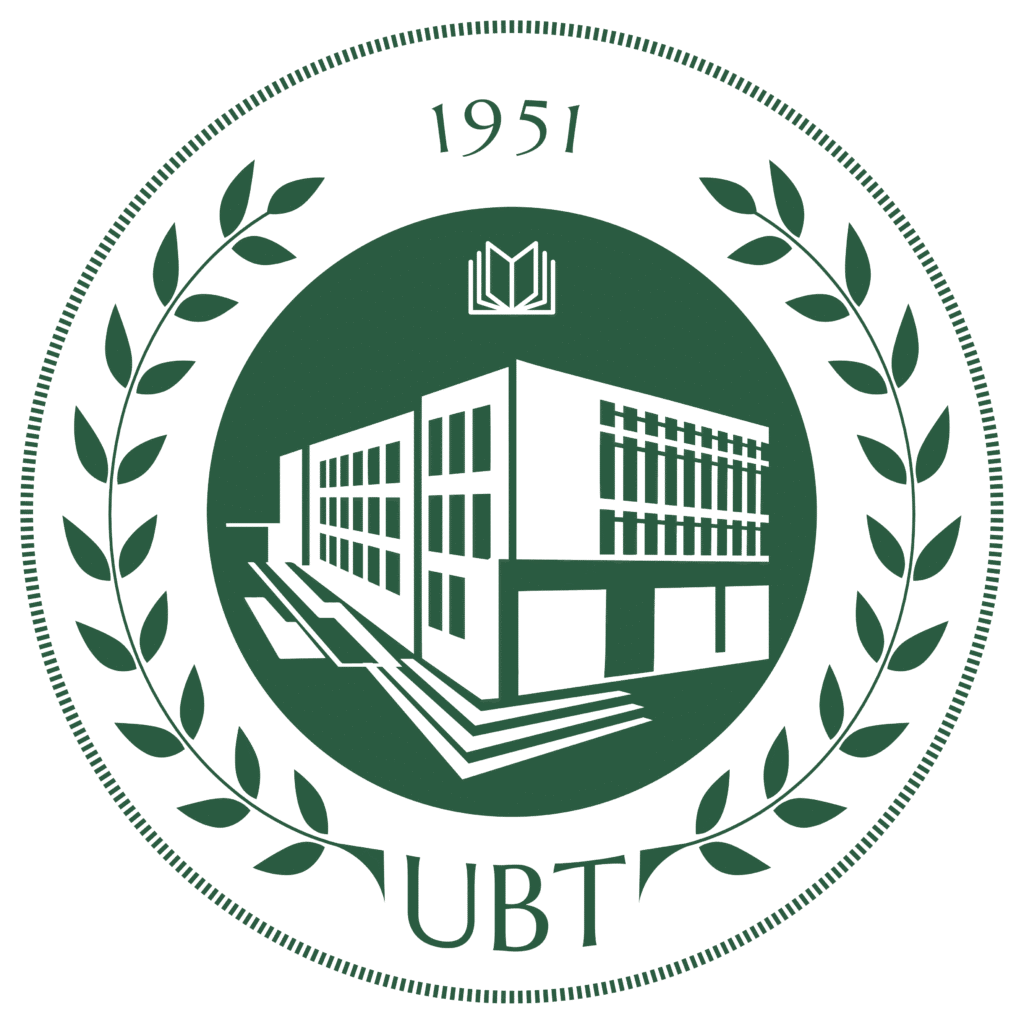
Agricultural University of Tirana
The Higher Agricultural Institute (HAI) was established on November 1, 1951, just seven years after the end of the Second World War, at a time when Albania had only recently reasserted its sovereignty—albeit as part of the communist bloc. First lectures on agricultural sciences were delivered at the Faculty of Agronomy in 1951.
The founding of HAI took place during a challenging period, as Albania, a relatively young nation, had been independent for just four decades, having removed itself from the fold of Ottoman Empire and endured the devastation of two world wars.
The establishment of the Higher Agricultural Institute (HAI), today referred to as the Agricultural University of Tirana (UBT), aligned with the state-oriented policies adopted by many post-war European countries to boost agricultural production in response to widespread poverty and hunger. The journey of HAI—along with that of higher education in Albania—can be traced back to Laprakë, seventy years ago. Five years later, in 1956, the institute moved to Kodër-Kamëz, an area then covered in oak forests and meadows that surrounded Tirana at the time—the very spot where it remains to this day.
The Higher Agricultural Institute was established during a time when Albania was mired in backwardness and misery, trapped in a medieval state of existence that most European countries had overcome centuries earlier. Under these harsh conditions—exactly 74 years ago—HAI laid its foundations as a beacon of knowledge and hope for hundreds and thousands of young male and female students, and for the many dedicated lecturers who embarked upon a critical mission: to fundamentally reshape the lives and behavior of the rural producer and the urban consumer alike.
Today, while remaining faithful to its tradition, the Agricultural University of Tirana has expanded its academic and research portfolio—driven by strengthened academic capacities and enhanced laboratory expertise. Its faculties, departments, and academic staff stand among the most reliable partners of the Albanian Government in the drafting and implementation of development programs and strategies. After 74 years, AUT has emerged as a consolidated university, with one of the best campuses and teaching/laboratory infrastructures in Albania. With roughly 6,000 students enrolled and the most highly qualified academic staff in its history, AUT continues to gain ground in the fields of knowledge and scientific research it covers. The university is led by a comprehensive strategic development master plan that extends well beyond the year 2030.
After 74 years, the Agricultural University of Tirana (UBT) has a crystal-clear vision and a well-defined path to fulfilling its mission in strategically vital areas for the country, such as: food security, animal health closely linked to public health, the sustainable management of natural resources (including soil, water, biodiversity, and climate change adaptation), environmental quality, and the development of the agricultural economy.
After 74 years of its existence, AUT has defined clearly it perspective and direction as it is zooming in on 2030. With a forward-looking mission “AUT as a Center of Excellence”—the university is following a well-defined roadmap to achieve its strategic goals, drawing on the guidance and institutional support from the University of Vienna (BOKU).
As of today, graduates of the Agricultural University of Tirana have revitalized rural areas — they produce and export goods and services, welcome visitors and tourists, keep tradition alive and kicking, promote natural resources, and serve as key drivers of sustainable development. AUT alumni have made and continue to make significant contributions within both local and central administrations by making their way up even to the highest leadership positions in the state.
It is difficult to find a corner of the world where a AUT graduate has not left a mark. The sons and daughters, who have graduated from AUT, continue to contribute to hundreds of organizations, institutions, and universities across the globe.
Currently the university has about 6000 students, 5 Faculties and 1 Institute. AUT offers 45 accredited study programmes at BSc, MSc and PhD levels (in 12 BSc, 27 MSc and 6 PhD programmes).
The university has 600 employees, of which more than 300 are Professors or Associate Professors.

University of Natural Resources and Life Sciences
The University of Natural Resources and Life Sciences, Vienna, or simply BOKU (derived from its German name, Universität für Bodenkultur Wien), founded in 1872, is an education and research centre for renewable resources in Vienna, Austria. BOKU combines expertise in the fields of natural sciences, engineering, biotechnology, and social and economic sciences. In research and teaching, it focuses on:
-
- – the conservation and development of protection for habitats, economy, and living standards
- – the management of natural resources and environment
- – the protection of food and health
BOKU sees itself as an innovation leader in the green economy, with the goal of integrating sustainability into all processes in society. It is a member of the Euroleague for Life Sciences (ELLS), the United Nations Academic Impact (UNAI), the European University Initiative (EPICUR), the Austrian-African Research Network (Africa UniNet), and numerous other international cooperations. There are currently 10,941 students from over 100 countries enrolled at BOKU.
Campus: After 27 years at Palais Schönborn, the City of Vienna decided in 1896 to build a new campus at Türkenschanzpark in the 18th district. The departments of sustainable agriculture, soil science, horticulture, animal husbandry, economics, and social sciences are still headquartered at this original campus. Another city campus, located at Muthgasse in the 19th district near the Heiligenstadt underground station, is the headquarters for the biotechnology, chemistry, plant sciences, water resource management, waste management, and food sciences departments. There is also a research facility complex in Tulln, north of the city, with biotechnology and agricultural sciences laboratories and facilities. Other important locations and testing fields are Groß-Enzersdorf (Lower Austria), Jedlersdorf (Vienna), Knödelhütte (Vienna), Heuberg/Rosalia (Burgenland), and the Water Cluster Lunz am See (Lower Austria).

Geoinformation Centre for the Western Balkans
Geoinformation makes a valuable contribution to assessing environmental conditions and thus facilitates well-founded decisions on land use, sustainable resource management and nature conservation. In the Western Balkans, there is still much room for progress in leveraging the power of geoinformation technology, with a particular lack of appropriately trained personnel and training opportunities. In GEO-WB6, we establish a Geoinformation Centre to close precisely this gap, by improving human resources for the management and analysis of geodata and by strengthening the regional network of geoinformation experts. We strive for the Centre to become a central hub for geodata in the Western Balkans, advancing the region’s research portfolio and supporting governments, NGOs and academic institutions, with the aim of supporting the region in the EU accession process regarding negotiating Chapter 11 (Agriculture and Rural Development) and Chapter 27 (Environment and Climate Change).
GEO-WB6 is funded by the German Federal Ministry of Food and Agriculture (BMEL) and jointly implemented by the Agricultural University of Tirana (AUT) and the Leibniz Institute of Agricultural Development in Transition Economies (IAMO).
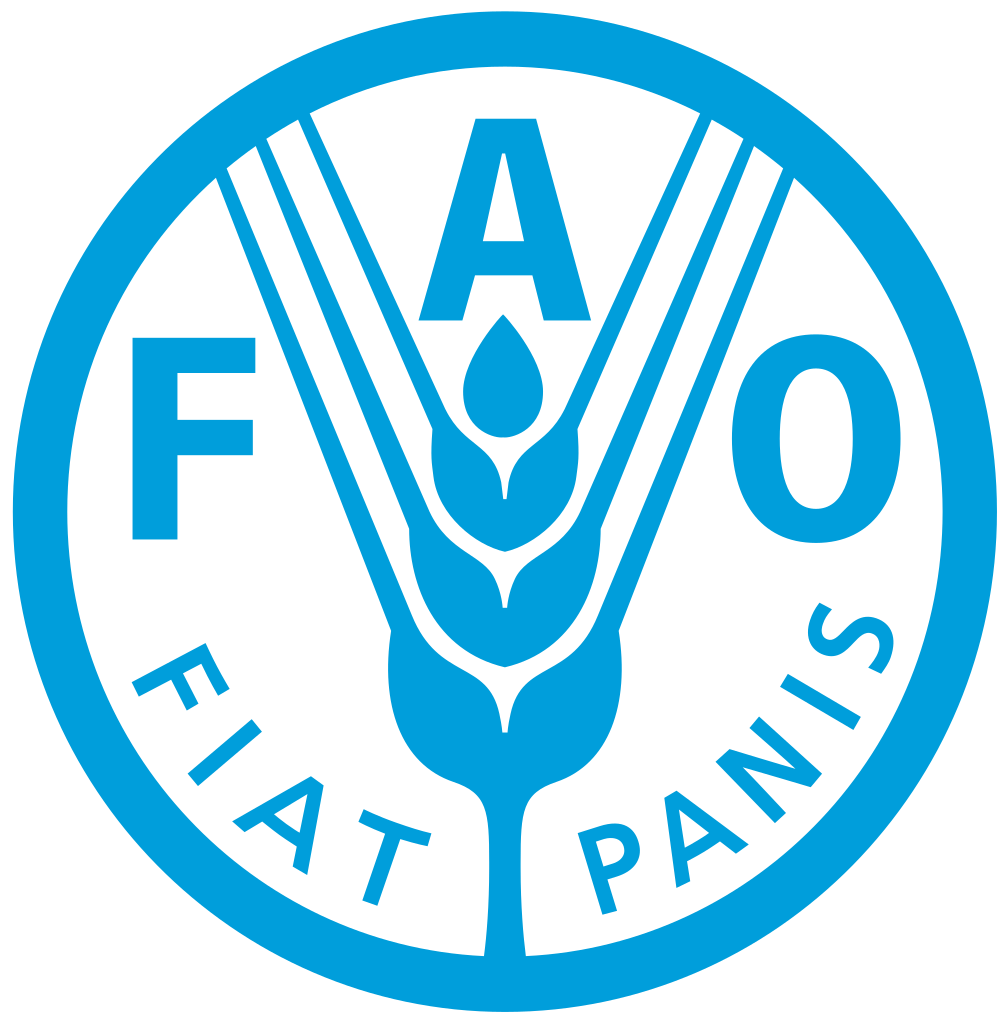
Food and Agriculture Organization
The Food and Agriculture Organization (FAO) is a specialized agency of the United Nations that leads international efforts to defeat hunger. The goal is to achieve food security for all and make sure that people have regular access to enough high-quality food to lead active, healthy lives. With 195 members – 194 countries and the European Union, FAO works in over 130 countries worldwide.
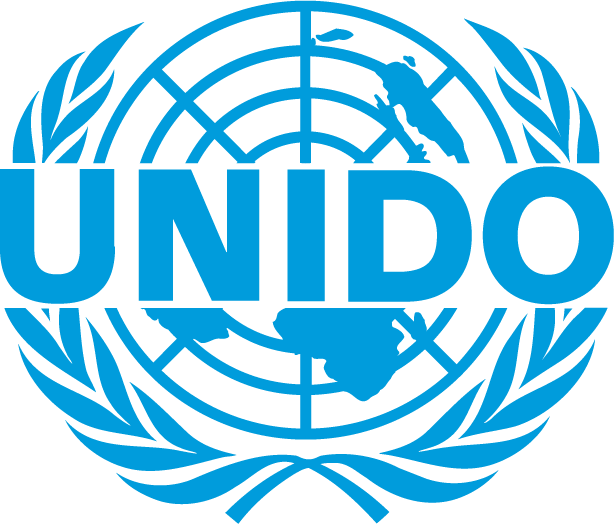
United Nations Industrial Development Organization
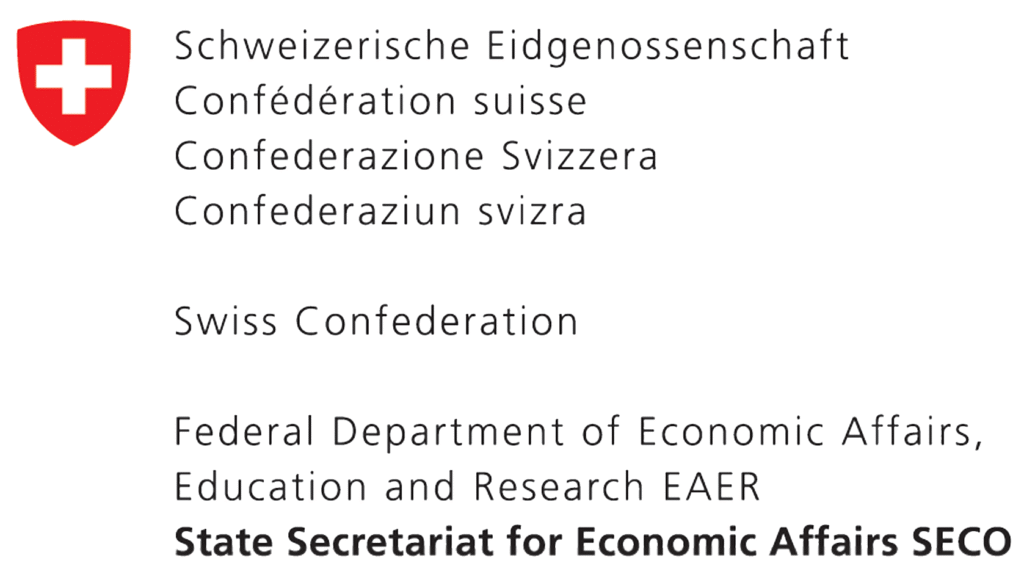
Switzerland’s State Secretariat for Economic Affairs
UNIDO
UNIDO drives Inclusive and Sustainable Industrial Development (ISID), boosting production capacity and global market integration. In Albania, it supports MAPs and fruit-vegetable sectors with quality, certification, and EU access via GQSP.
SECO
SECO fosters competitive, sustainable economies by improving business climate, private sector and digitalization. In Albania, it funds projects on quality, standards and agri-food value chains.
GQSP
GQSP, by UNIDO and funded by SECO, strengthens national quality systems and helps SMEs meet global standards with digital tools like QI4SD Index. It runs in 11 countries including Albania.
UNIDO–SECO Partnership
The UNIDO–SECO partnership boosts competitiveness and trust in Albanian products, guiding producers toward EU standards and sustainable growth.

National Agency for Scientific Research and Innovation
The National Agency for Scientific Research and Innovation (NASRI) is the responsible institution for evaluating, funding, monitoring, and administering programs and projects in the fields of science, technology, and innovation, both at the national and international level.
NASRI’s mission is to support and advance scientific research by fostering collaboration between research institutions, universities, the private sector, and other relevant stakeholders. Through institutional and financial support, the agency aims to build a sustainable and advanced environment for the development of knowledge and innovation in Albania.
Our vision is to establish a research and innovation system aligned with national priorities that contributes to the country’s development and integration into the European Research Area. NASRI is committed to building modern research infrastructure, developing effective implementation instruments for R&D policies.

University College Qiriazi
“Kolegji Universitar Qiriazi”, with a 17 year successfully history, is one of the first non-public institution of Higher Education in Albania. It is founded on 2006. The main aim of the institution is elevating the names of three icons of the nation education, who are Qiriazi sisters and Kristo Dako. The three of them, established In the same building, in 1922, Female Institution of Kyrias, which was a “national nest” of the time, with very high level of contribution for the Education in Albania. This is the main and unique reason why the emblem of this institution will be the bright history of these three national salient and distinguished personalities https://qiriazi.edu.al/
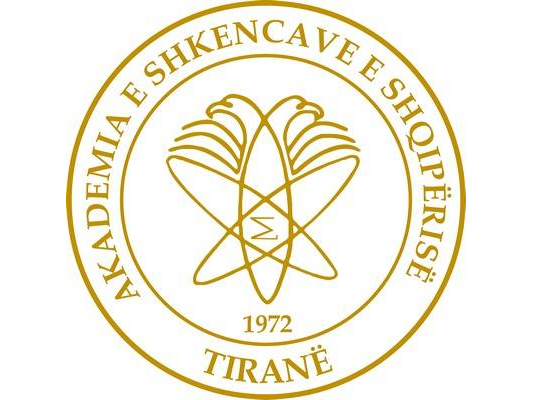
Academy of Sciences of Albania
The Academy of Sciences of Albania, founded in 1972, is the most important scientific institution in Albania. In the 1980s, several research institutes began at the University of Tirana were transferred to the Academy’s jurisdiction. The institution includes the most distinguished scientists, also called “academics”, that are involved in research centres and other organisations inside and outside Albania. As of 2009, the Academy had 23 regular members, 10 associated members, one permanent member, and 26 honour members
The Academy was among several dozens of the world’s scientific academies which endorsed through signature the Summit Statement emerging from the New Delhi Population Summit of 1994.
The Academy is composed of two sections:
– Social Sciences and Albanological Section
– Natural and Technical Sciences Section
It also includes the following units:
– Projects of Technological and Innovation Development,
– Branch for Foreign and Public Relations,
– Library
– Publishing
The Academy of Sciences of Albania has the country’s largest academic library. Founded in 1975 starting with 10,000 volumes, it included 812,000 volumes by 1986.
In 2008, funding for most research functions of the academy was withdrawn, those research functions subsequently transferred to universities and research centres. Four research institutes which were separated from the Academy joined to form the Centre of Albanological Studies. http://akad.gov.al/
Partners
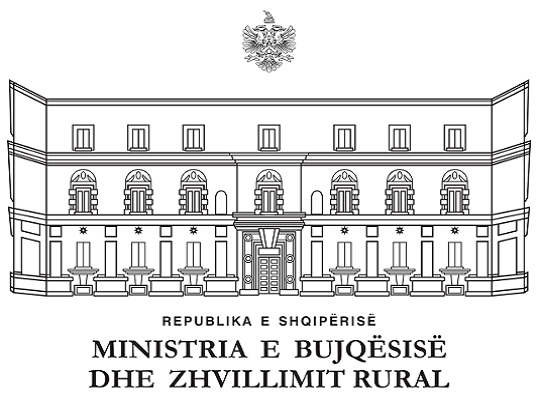
Ministry of Agriculture and Rural Development
The Ministry of Agriculture and Rural Development (Ministria e Bujqësisë dhe Zhvillimit Rural) in Albania is in charge of regulation of the economic activity in the agricultural sector of the country with a purpose of increasing the sector’s production capacity. The ministry is responsible for agriculture, rural development, food safety and consumer protection, fisheries and aquaculture, and waters administration.

Michigan State University
Michigan State University (MSU), located in East Lansing, Michigan, USA, is one of the nation’s top public research universities and a pioneer among land-grant institutions. Founded in 1855, it began as the Agricultural College of the State of Michigan, the prototype for the land-grant university model established under the Morrill Act of 1862. This legacy set the stage for MSU’s commitment to accessible education, research that benefits society, and outreach that transforms communities. MSU offers more than 400 programs of study across undergraduate, graduate, and professional levels.
As a member of the Association of American Universities (AAU), MSU ranks among the top research institutions globally. MSU annually receives over $700 million in research funding, driving innovations in health, sustainability, agriculture, and technology.Rooted in its land-grant heritage, MSU is deeply committed to public service, community engagement, and practical solutions to real-world problems. Its MSU Extension program brings research-based knowledge to all 83 counties of Michigan. Globally, MSU operates in more than 140 countries through partnerships, development projects, and educational programs, making it a leader in international research and collaboration.With over 50,000 students from more than 130 countries, MSU offers a dynamic and inclusive campus environment.
The MSU campus spans over 5,300 acres, making it one of the largest and greenest in the United States. Michigan State University continues to play a key role in addressing global challenges—from climate change and food security to social equity and technological innovation—through education, research, and outreach

Boston University School of Public Health
Boston University School of Public Health (BUSPH) is a globally recognized institution committed to advancing public health through education, research, and practice. Located in the heart of Boston’s renowned Longwood Medical Area, BUSPH offers a vibrant academic environment that brings together students, faculty, and practitioners from across disciplines to address some of the world’s most pressing health challenges.
The School offers a wide range of graduate programs, including a highly ranked Master of Public Health (MPH), as well as doctoral degrees and certificates in specialized areas such as epidemiology, health policy, environmental health, and global health. BUSPH emphasizes practical, real-world impact, encouraging students to engage with communities locally and globally through applied research, internships, and fieldwork.
Faculty at BUSPH are leaders in their fields, working on cutting-edge issues such as pandemic preparedness, health equity, climate and health, substance use, and the social determinants of health. The School fosters a collaborative and inclusive culture, driven by its mission to improve the health of populations—particularly the most vulnerable—through innovation and evidence-based solutions.
With strong connections to Boston’s extensive healthcare, academic, and policy networks, BUSPH is an ideal place for aspiring public health professionals to build skills, gain experience, and shape meaningful careers.

University of Bari Aldo Moro
The University of Bari Aldo Moro (Università degli Studi di Bari Aldo Moro) is a prestigious public university located in Bari, southern Italy. Founded in 1925, it is named after Aldo Moro, a distinguished statesman and former student who played a key role in modern Italian politics. The university offers a wide range of undergraduate, graduate, and doctoral programs across disciplines including humanities, sciences, economics, law, medicine, and engineering. With a strong focus on research, innovation, and international collaboration, the University of Bari is recognized for its academic excellence and contribution to regional and global development.

University of Molise
The University is composed of 6 Departments: Department of Agricultural, Environmental and Food Sciences; Department of Economics; Department of Humanities, Education and Social Sciences; Department of Biosciences and Territory; Department of Law; Department of Medicine and Health Sciences. The University of Molise counts 3 University campuses, 9000 students, 105 PhD students and about 600 among teaching and non- teaching staff; it is equipped with several laboratories, multimedia and language labs, central and departmental libraries, and a sports center. The University of Molise is actively involved in the Erasmus Plus programme, especially for what concerns student mobility programmes for study and traineeship, teaching mobility and staff mobility.
